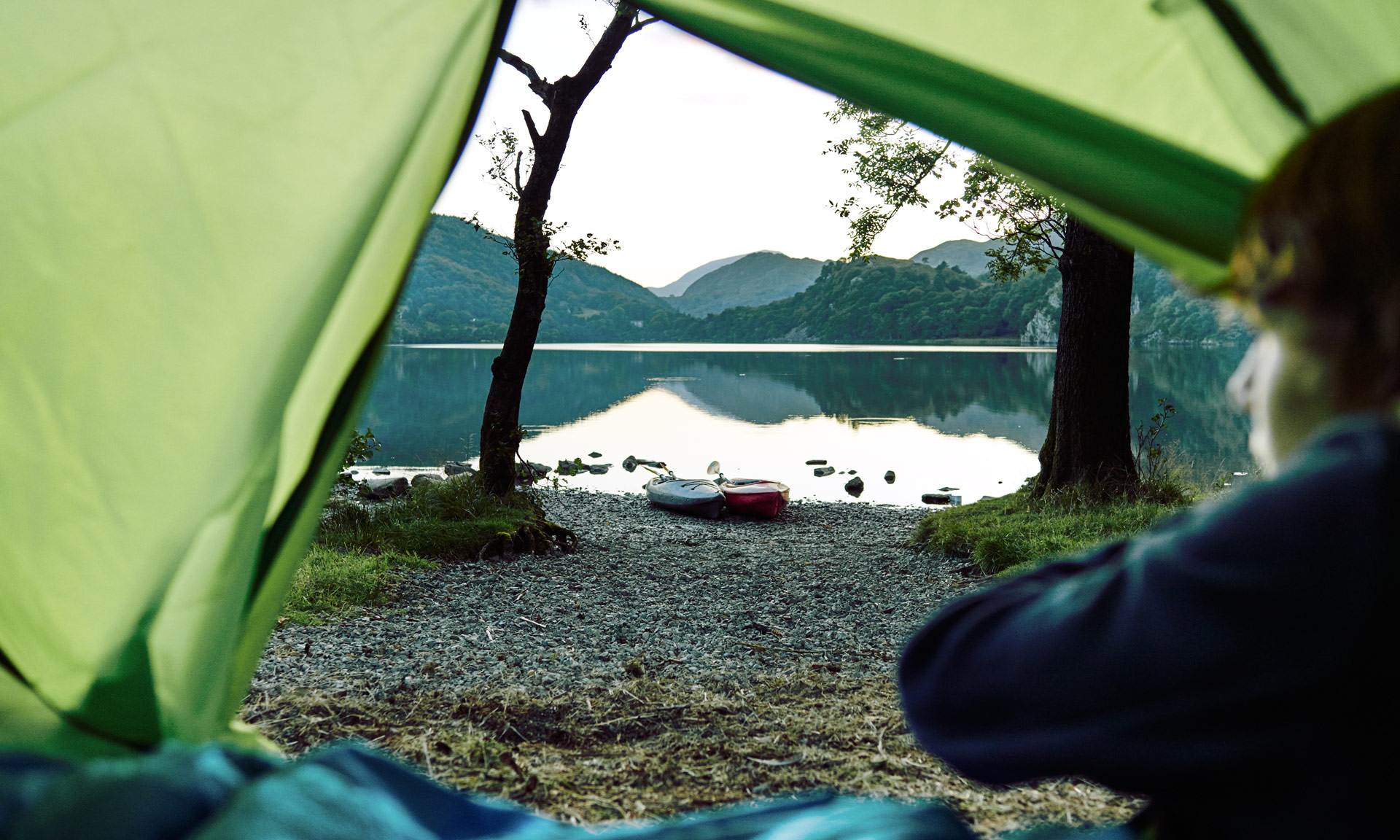Camping is one of the best ways to experience nature. From lakeside and coastal retreats, secluded mountainous hideaways to rustic glamping getaways, Eryri is full of incredible campsites.
Camping
For the best experience of camping in the Park, make sure you:
- Stay in an official campsite
- Book a place well in advance
- Consider when and how you will travel to the campsite. Some areas of the Park can get very busy during peak seasons.
Advice on Camping in Eryri
Simon Roberts, the National Park Authority’s Senior Warden for North Eryri, gives advice on camping in the National Park.
Permission to wild camp
Wild camping is not permitted anywhere in Eryri without prior permission from the landowner or farmer. Camping in car parks or on roadside verges is not allowed at any time.
The National Park owns little land; therefore, we cannot give consent for this activity on other people’s land including agricultural land, sate or private forest, National Trust property, riverside or coastal areas or land designated under the Countryside & Rights of Way Act as ‘open country’.
Wild Camping – Recommendations
Given the current situation we recommend that you seek to use one of the many official campsites around the National Park. Booking in advance is highly recommended due to the popularity, particularly during the peak season.
Alternatively, you could book accommodation in one of the many Youth Hostels (YHA) within the National Park. These are popular so book well in advance to avoid disappointment. It may be advantageous to think about booking midweek in the high season.
Wild Camping Code
If you are camping in an official campsite, or if you do have permission from the landowner to wild-camp, any camping should be done responsibly and discretely in the hills and mountains and should follow the Eryri Wild Camping Code as below:
- Camp high and off the beaten track on open hills and fells and well away from houses and farms.
- Pitch your camp later in the day and leave early to minimise your visual presence.
- Stay for one night only to minimise your impact.
- Leave no trace that you’ve camped.
- Don’t light any fires and do not use disposable barbeques.
- Great care must be taken if using gas or liquid fuel stoves. Always ensure the cooking area is free from flammable materials including vegetation.
- Don’t light any fires and use a gas stove for cooking.
- Toileting should be at least 30 m away from any water source or path, and waste buried at least 15cm deep and covered over. Carry paper and any sanitary items away with you.
- Leave no litter; take away all rubbish and food scraps with you.
- Don’t pollute the area with any non-eco-friendly detergents and do not use streams, lakes or rivers for washing with soaps or other washing products. Take a small bowl and dispose of this well away from any water courses.
- Move on respectively without argument if asked by a landowner to do so.
- Use unobtrusive coloured tents that blend in with the scenery.
- Camp with just one or two tents; no groups.
- Choose your pitch carefully and avoid digging ditches, trampling plants and moving rocks and stones just to accommodate your tent.
- Be quiet.
- If you’re in any doubt about whether you can camp, choose another location.
Report a problem
Snowdonia National Park Authority are working closely with colleagues in Gwynedd Council to address damaging fly-camping issues. You can report a problem on the Gwynedd Council website.
The law and further information
In unfenced isolated upland areas, the access land provisions of the Countryside & Rights Of Way Act (CROW) specifically state (under the list of restrictions in Schedule 2{1} s) that wild camping is not a permitted activity unless granted by permission.
If you are planning an expedition or running mountain training activities and would like further advice and guidance, please get in touch with our Access Team:
Peter Rutherford
Access Manager, Eryri National Park Authority
peter.rutherford@eryri.llyw.cymru
01766 772 258
07900 267 538
Eryri’s campsites fill up quickly during the busy summer season of April to September. Make sure you book a campsite well in advance.
If you are looking for a quieter and more peaceful camping experience, book a place at a campsite during the week. The weekends are often busy in Eryri, especially during the summer season.
Most of Eryri’s official campsites are suitable for campervans and caravans.
Staying overnight at a car park in a campervan or caravan is not permitted in Eryri National Park. Booking a place at an official campsite is the best way to ensure peace of mind and a chance to relax completely during your stay.
Most of Eryri National Park’s landscape is privately owned and used for farming, forestry and many other purposes. Camping is not allowed in these areas unless you have the landowner’s permission.


